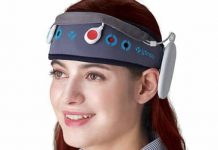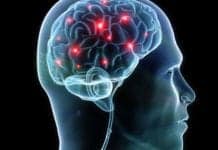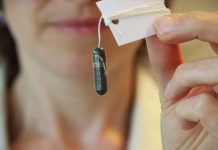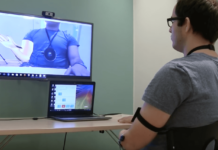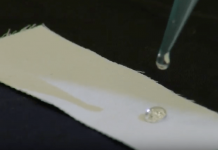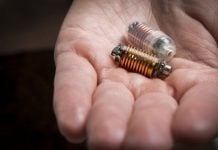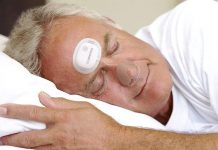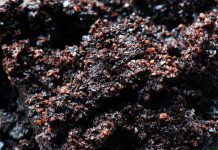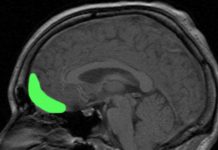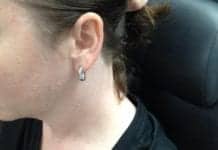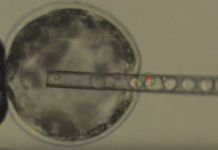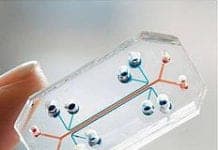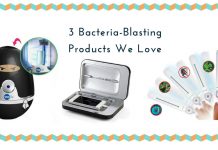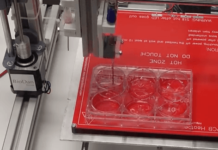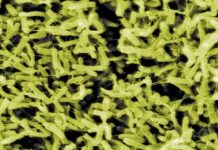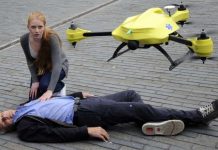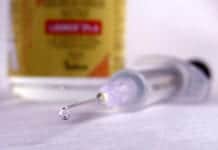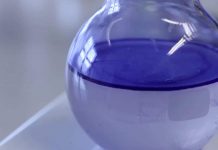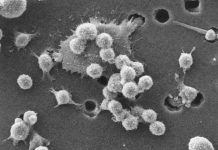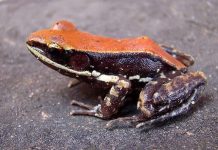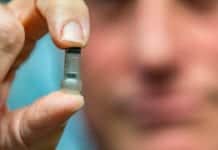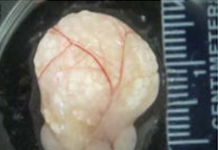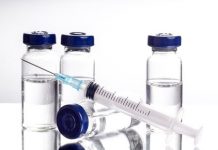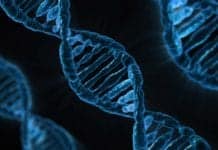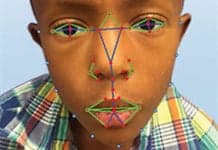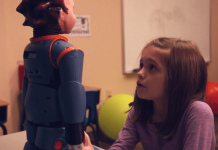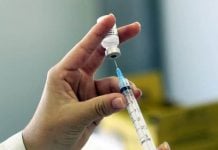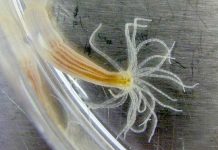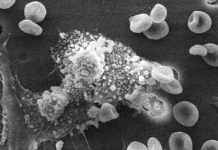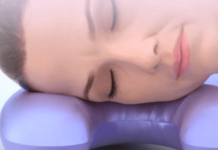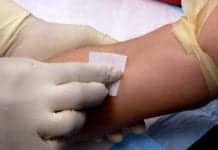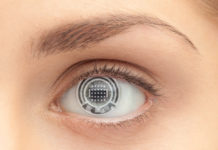New Headband Technology From South Korea Aims to Treat Depression
This new type of treatment does not try to lessen symptoms, but rather cure depression itself.
11-Year-Old Girl Invents Her Own Glittery Prosthetics
Jordan Reeves' limb difference isn't slowing her down; she's embracing her unique condition by raising awareness for other children with limb differences and even designing her own 3D prosthetics.
This Doctor Just Created a Slimming Chocolate
After developing a variety of supplements that help to better your body from the inside out, Dr. Amy Lee and the Nucific brand are combining two ideas that are usually an oxymoron: slimming and chocolate.
Scientists Discover the Hiding Place of the Brain’s Long-Term Memories
Our memories, it turns out, don’t reside in some abstract space or inside an impenetrable lock-box.
Researchers Create ‘Pill-on-a-String’ Technique to Better Detect Cancer
The unique technique can rub the esophagus and scrape away cells that scientists can then examine for cancer.
Virtual Reality Could Help Amputees Deal With Phantom Pain
The phantom pain that often plagues amputees has remained something of a mystery, but a new treatment shows promising results for reducing the pain.
Lab-Grown Mini Brains Shed Light on Autism
The researchers wanted to find out whether they could pinpoint changes in brain activity between the mini brains they created, which retained characteristics of a living, human brain.
This New Fabric Repels Grease Stains
Good news for pizza lovers — this new nanotech fabric is oil and grease-resistant.
Miss or Must-Have? Rank These Health Innovations
Vital Updates scours the web daily for innovative health products. Cast your vote to let us know which ones you think are the most interesting.
Ingestible Sensor Offers Inside Peek Into Patients’ Gut Health
Understanding the presence and amount of gases in the stomach and intestines can help scientists better deal with gastrointestinal diseases and other disorders.
Magic Mushrooms May ‘Reset’ Depressed Patients’ Brains
The researchers note that using psilocybin as a treatment method is a tactic that goes back centuries, and one that may be beneficial for hard-to-treat cases of depression.
Could a Nasal Spray Help Treat Gambling Addiction?
For those who suffer from a gambling addiction, the National Institute for Health and Welfare in Finland is working on a treatment.
This Wearable Patch Detects Sleep Apnea
Read about the innovative new wearable that can diagnose sleep apnea as well as traditional methods.
Can You Really Shake Your Way to a Runner’s Body?
The BionicGym is a wearable device that lets you 'shiver' away those extra pounds.
Scrub Away Cellulite With Coffee Grounds?
Scrubs made with coffee grounds can give your skin an extra boost from the antioxidants, and the caffeine can tighten the skin.
Obsessive-Compulsive Disorder Strongly Linked to Brain Inflammation
The discovery is a major breakthrough in understanding the biology of OCD.
Innovative Behind-the-Ear Technique Avoids Neck Scarring After Thyroid Surgery
The technique involves making an incision behind the ear instead of beneath the voice box, where thyroidectomy procedures traditionally occur.
Scientists Create First Human-Pig Hybrid in Breakthrough Study
The research could one day lead to the growth of human organs inside animals for transplant use.
New Microchip Technology Could End Animal Testing Forever
A team of biological engineers at Harvard have developed small-scale models of actual human organs in an effort to gauge their reaction to medication and provide a window into how these organs function.
Genetic Variant Tied to Greater Obesity Risk in African Americans
The new focus opens up additional opportunity for understanding — and perhaps preventing — rates of obesity among African Americans.
3 Bacteria-Zapping Products for the Home
To truly protect yourself, it’s time to give your cleaning ritual an overall tech upgrade.
Wearable Device Allows Expectant Mothers to Track Contractions
This technology will provide much needed insight and data during a woman's pregnancy.
Teen Creates Bra That Detects Breast Cancer
Julian Rios Cantu, an 18-year-old teen from Mexico, was determined to create the cancer-detecting bra, called "Eva," after witnessing his own mother's struggle with breast cancer.
File, Print, Wear: New 3D Bioprinter Creates Human Skin
Scientists believe they may have found a fast, reliable method to reduce the need for costly procedures like skin grafts.
Sweet Science: Cotton Candy Machines Create Human Cells
http://www.youtube.com/watch?v=11o9PcpRVAILike this video? Subscribe to our YouTube channel by clicking here.
Cotton candy machines are best known for spinning threads of brightly colored sugar, but biological...
Technology May Be Moving Faster Than Our Brains Can Handle
Read about the mental disorders that have arisen specifically from technology and Internet usage.
CRISPR Pills Could Replace Antibiotics
Scientists are utilizing gene-editing technology to create pills that could destroy bacteria within the body.
Drones to the Rescue: Flying Defibrillators Reach People Faster Than Ambulances
Swedish researchers found that attaching defibrillators to high-tech drones shaved off an average of 16 minutes for response times, a difference that can mean life or death for heart attack patients.
His and Her Genes Reveal Key Differences in Our Bodies
The researchers noticed marked differences among some genes based solely on whether the genes were in a man or woman’s body.
Promising Alzheimer’s Vaccine Moves Closer to Human Trials
The vaccine testing program is currently underway in pre-clinical trials, and the researchers plan to move forward with efficacy tests among human subjects once they conclude.
This Antioxidant May Be the Next Big Thing in Skin Care
Researchers may have discovered a powerful new way to invigorate aging skin.
Can Setting Off Nano Explosions Within the Body Kill Cancer Cells?
By tapping into the body’s cellular functioning, the nanoparticle method can act in a way that doesn’t promote a defensive response from fast-growing cancer cells.
Frog Slime May Protect Against Deadly Flu Strains
The discovery of a peptide in the frog slime is a potentially important one to global public health.
Jet Stream Vaccine Technology May Replace Needles
The MucoJet device is a painless way to administer vaccines orally.
Artificial Ovaries Could Mean Less Harmful Hormone Therapies for Women
The researchers hope to determine whether the engineered ovaries are successful for women.
Scientists Use CRISPR to Change a Flower’s Color
Scientists have changed the genetic makeup of flowers by using DNA splicing technology, which reveals the vast potential of CRISPR.
Clinical Trials for Type 1 Diabetes Vaccine Coming Soon
The vaccine centers around previous research that has identified a common type of virus, called an enterovirus, as a cause of type 1 diabetes.
Gene-Editing Injection Could Permanently Lower Cholesterol Levels
Although human trials are still decades away, the CRISPR gene-editing technique shows promising results when lowering cholesterol permanently in animal trials.
New Facial Recognition Technology Can Detect Rare Disease
Diagnosing a rare disease in children called DiGeorge syndrome may be as simple as taking a photo with new facial recognition software.
WATCH: This New Robotic Hand Has a Human Touch
A group of scientists from Cornell University may have devised a way for a robot to feel its surroundings internally, similar to the way humans do.
Robot Joins Classroom as Teacher for Autistic Children
Learning social skills from a robot may seem odd, but for children with autism, it can provide a unique experience that is more predictable and engaging.
New HPV Vaccine Aims to Eradicate Cervical Cancer
The new vaccine, currently under the consideration of Australia’s national health center, would prevent the infection of five additional strains of HPV.
Do Sea Anemones Hold the Key to Generating Human Heart Cells?
Sea anemones, although without an actual heart, do contain “heart genes” that researchers have found to be identical to human heart genes.
Brain Implant Helps Paralyzed Man Use His Thoughts to Feed Himself
For the first time in eight years, a paralyzed man in Cleveland, Ohio fed himself dinner with the help of an innovative brain implant.
Chronic Pain Can Stop, Study Says
A new animal study shows how chronic pain starts and where it can end.
Scientists Disable Cancer’s Ability to Spread Using Tiny Gold Rods
The new technique showed that using tiny gold rods heated by lasers essentially sawed off the cancer cells’ legs.
This Innovative Pillow May Prevent Sleep Wrinkles
The pillow's design reinforces good sleeping habits, not wrinkles.
New Blood Test Aims to Detect Autism Sooner
Scientists from the UK hope the test will not only help to detect autism spectrum disorder sooner, but also to reveal new causes.
Researchers Are Developing Contact Lenses that Can Detect Disease
With bio-sensing contact lenses that can assess blood glucose levels, the researchers hope to improve health outcomes by replacing older, painful methods of diabetes monitoring.
iPad Game May Help Prevent Dementia
The interactive game was enjoyable among the study participants, something that is vital to successful cognitive training.


